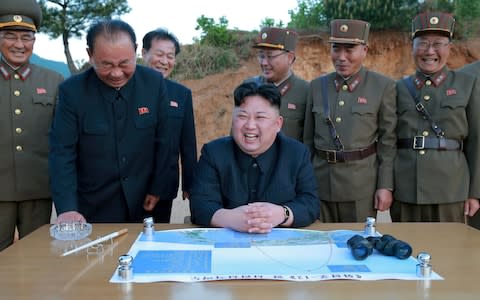China to 'pay the price' over North Korea sanctions, insists Beijing

China has said it is willing to “pay the price” and fully implement harsh sanctions on its historic ally North Korea, although experts have questioned the impact of the measures.
Pyongyang relies heavily on its economic links with China, and the ban on North Korean exports of coal, iron, lead and seafood products will largely affect trade between the two countries.
Chinese foreign minister Wang Yi said: “Given China's traditional economic links with the DPRK, it is China that will mainly pay the price for the implementation of (the sanctions).
“China will continue to fully and strictly implement all the contents of the resolution to safeguard the international nuclear non-proliferation regime and maintain regional peace and stability,” he added, according to Xinhua state news agency.

The sanctions were agreed by the UN in a unanimous vote on Saturday after the rogue state carried out two intercontinental ballistic missiles (ICBM) tests in July.
Confronting Kim Jong-un’s regime is a key aspect of Donald Trump’s foreign policy.
The US president expressed his delight following the agreement of the sanctions, which could slash $1 billion from North Korea’s $3 billion annual export revenue.
However, the success of the measures is not only dependent on Beijing’s willingness to fully implement them, but also on whether they will have an impact on the North’s nuclear weapons programme.

Many observers believe North Korea’s leaders will shield the country’s military build-up from any negative affects of the sanctions, and instead squeeze the country’s already impoverished citizens.
“North Korea is already a de facto nuclear state and it's doubtful that sanctions are going to do anything to affect this,” said Richard Bitzinger, a military expert at the S. Rajaratnam School of International Studies in Singapore.
“Sanctions are mainly a feel-good exercise for the countries implementing them,” he told The Telegraph.

